
Myra Kandemiri
Academic Teaching Staff Assistant Lecturer, Faculty of Education, University of Alberta
Myra Kandemiri is a Lecturer of Elementary Science at the Faculty of Education, University of Alberta. A registered Alberta Education K-12 teacher, she has served as Research Coordinator for the Black Youth Mentorship and Leadership Program from 2021.
Less ![]()
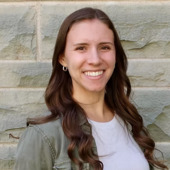
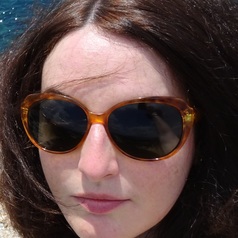
Myriam Benraad
Professeure en relations internationales / Schiller International University et Institut libre d'étude des relations internationales et des sciences politiques (ILERI), chercheure associée à l'IREMAM (CNRS/AMU), Aix-Marseille Université (AMU)
Politologue, docteure en science politique de l’Institut d’études politiques de Paris (Sciences Po, 2011), elle est professeure en relations internationales à l’Université internationale Schiller (Schiller International University) à Paris et à l’Institut libre d’étude des relations internationales et des sciences politiques (ILERI).
Ses travaux les plus récents portent sur les émotions dans leurs rapports à la violence politique et aux relations internationales.
Elle est l’auteure, entre autres publications, de Géopolitique de la colère. De la globalisation heureuse au grand courroux (Paris, Le Cavalier Bleu, 2020), de Terrorisme : les affres de la vengeance. Aux sources liminaires de la violence (Paris, Le Cavalier Bleu, 2021) et de L'Irak par-delà toutes les guerres. Idées reçues sur un Etat en transition (Paris, Le Cavalier Bleu, 2023).
Adresse électronique : [email protected]
Less ![]()
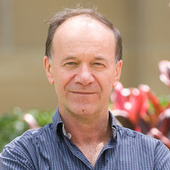
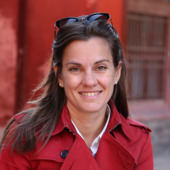

Myunghee Lee
Assistant Professor, Michigan State University
Myunghee Lee's research interests include authoritarian politics, democratization, protest, and foreign policy. Her regional focus is East Asia, particularly the Korean Peninsula and China. Her work appears in many prominent journals such as International Security, Journal of East Asian Studies, Politics and Gender, and International Studies Review. Her research has been supported by the Korea Foundation and the Academy of Korean Studies.
Less ![]()
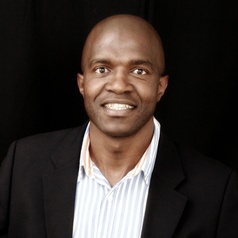
Mzukisi Qobo
PhD, University of Warwick, UK
Associate Professor: Pan African Institute, University of Johannesburg
Political Economist - Africa Insights - Global Change
Less ![]()

Mª Inmaculada Zarzo Llobell
Estudiante de Doctorado en Medicina, Universitat de València
Licenciada en Farmacia por la Universitat de València.
Graduada en Nutrición Humana y Dietética por la Universitat de València.
Estudiante de 5º año de Doctorado en Medicina en la Universitat de València.
Farmacéutica adjunta (2005-2022).
Dietista-Nutricionista (desde 2013 y desde noviembre de 2022 en la Clínica de la UV, CUNAFF).
Less ![]()

N. Zoe Hilton
Professor, Temerty Faculty of Medicine, University of Toronto
Dr. N. Zoe Hilton is a Professor of Psychiatry in the Temerty Faculty of Medicine, University of Toronto, and the Senior Research Scientist at Waypoint Centre for Mental Health Care in Penetanguishene, Canada. She maintains an active research program that focuses on intimate partner violence, risk assessment, and risk communication. She authored the 2021 book, "Domestic Violence Risk Assessment," 2nd edition.
Dr. Hilton is also a registered psychologist and, prior to her current role, she provided and supervised psychological services in Waypoint's forensic division. Working in an applied setting, she seeks to conduct research that has direct implications for forensic mental health, policing, and correctional practice. This work includes a research and knowledge translation project on trauma among psychiatric workers, and a longitudinal study of the progress and outcomes of a cohort of men admitted to forensic psychiatry.
Less ![]()

Na Li Na Li
Associate Professor, Director of Digital Education Programme, Department of Educational Studies, Xi'an Jiaotong-Liverpool University
Are you ready for the digital future?
Despite technological advances, higher education has yet to benefit from technological innovations. Covid-19 forced universities to embrace online and hybrid learning and teaching supported by virtual learning environments (VLEs) and other tools. Many teachers are questioning whether this “new normal” should stay or if we should return to pre-pandemic approaches. These questions have prompted me to reflect on how we can use technology to improve education.
I’m Na (Lina) Li, Senior Fellow of Advance HE, Associate Professor and Director of Digital Education Programme in the Department of Educational Studies within the Academy of Future Education at Xi’an Jiaotong-Liverpool University (XJTLU). As a researcher with over ten years of experience in higher education, I explore how technology can develop better education.
In one of my case studies, I interviewed teachers and managers from XJTLU to understand why they do not use technology in education. I have discovered that teachers only use technology in education when it has a clear purpose and benefit. For example, during Covid-19, teachers used technologies, such as Zoom, for distance teaching because the purpose and benefit were clear. However, before Covid-19, XJTLU implemented technology with similar functions, but teachers refused to use it.
My vision of research is to help universities consistently develop to adopt technology to provide quality education.
Less ![]()
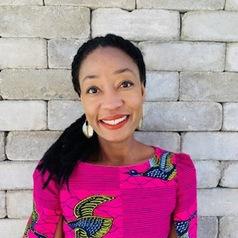
Naaborle Sackeyfio
Associate Professor of Global and Intercultural Studies, Miami University
Dr. Sackeyfio teaches courses on global and intercultural studies; international studies; and African governance and development. Her research interests encompass governance; political economy; energy and resource politics; gender and sustainable development with a regional focus on sub-Saharan Africa.
Less ![]()

Nabhan Refaie
PhD Candidate in Management (Organizational Behaviour), University of Guelph
Nabhan is a PhD Candidate in Management at the University of Guelph (Guelph, ON). Previously, Nabhan has completed an M.A. in Experimental Psychology at the University of Regina, and a B.A. in Psychology at the University of Ottawa. Nabhan is particularly passionate about how individual experiences of disadvantage effect how we view the world, how we feel about each other, and how we react to our environments. He believes that focusing on individual needs is a pathway to creating a more equitable society. His research spans a number of relevant fields, including psychology, criminology, and business administration, and has been published in top-tier academic journals and presented in a variety of academic spaces.
Less ![]()
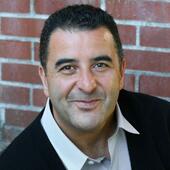

Nabilah Gulamhusein
PhD Student, Medical Sciences, University of Calgary
I am a 3rd PhD student in the Medical Sciences program at the Cumming School of Medicine, University of Calgary. My research program focuses on female-specific events across the lifespan (e.g., pregnancy, hysterectomy, route of menopausal hormone therapy administration) and how they relate to blood pressure.
Less ![]()
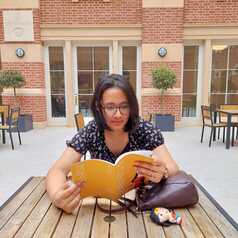
Nabiyla Risfa Izzati
Lecturer of Labour Law, Universitas Gadjah Mada
Nabiyla Risfa Izzati is a labour law lecturer in Faculty of Law Universitas Gadjah Mada. She is now a PhD student in Queen Mary University of London, researching on gender in gig economy. She completed her Bachelor of Law in Universitas Gadjah Mada in 2014 and her LLM degree in Leiden University, Netherland in 2015. Her research interest is in the labour law areas, specifically about labour rights, gig economy, and comparison study of international labour. She is also the Vice Director of Research Center for Law, Gender, and Society Universitas Gadjah Mada.
Less ![]()
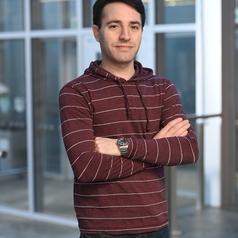
Nachum Gabler
PhD Student in Public Administration and Part-Time Sessional Instructor, Dalhousie University
Hold two masters degrees (Economics & Public Administration).
Previously worked for the Conference Board of Canada (2019 - 2023), BC Pension Corporation (2017 - 2019), BC Ministry of Finance (2016 - 2017), Alberta Treasury Board and Finance (2014 - 2016), and the Fraser Institute (2009 - 2013).
Less ![]()

Nadav Ahituv
Professor, Department of Bioengineering and Therapeutic Sciences; Director, Institute for Human Genetics, University of California, San Francisco
The Ahituv lab is focused on identifying gene regulatory elements and linking nucleotide variation within them to various phenotypes including morphological differences between species, drug response and human disease. In addition, our lab is developing massively parallel reporter assays (MPRAs) that allow for high-throughput functional characterization of gene regulatory elements and the use of gene regulatory elements as therapeutic targets or disease diagnostic markers.
Less ![]()

Nadège Levallet
Associate Professor, Management and Information Systems, University of Maine
Dr. Nadège Levallet is an Associate Professor of Management and Information Systems in the Maine Business School (University of Maine, USA). She earned her Ph.D. in management information systems at the Smith School of Business (Queen’s University, Canada). Her research lies at the intersection of digital technologies, strategy and innovation in small and medium organizations. She is especially interested in examining organizational responses to discontinuity events using digital resources. Nadège also studies research approaches, and especially qualitative comparative analysis. Her work has been published in internationally renowned outlets, including journals such as Information Systems Research, European Journal of Information Systems, Journal of Small Business Management, Journal of Knowledge Management, and MIS Quarterly Executive. Prior to joining academia, she spent more than a decade in progressive management positions in various private and public organizations in Canada and France.
Less ![]()
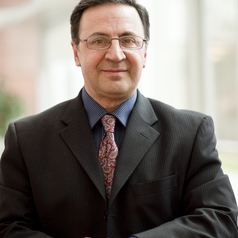
Nader Habibi
Nader Habibi is the Henry J. Leir Professor of Practice in the Economics of the Middle East at Brandeis University’s Crown Center for Middle East Studies. His current research project is focused on labor market conditions for university graduates in the Middle East. He also maintains a website on issues of underemployment and overeducation in developing countries (www.overeducation.org)
Before joining Brandeis University in June 2007, he served as managing director of economic forecasting and risk analysis for Middle East and North Africa in Global Insight Ltd. Mr. Habibi has more than 25 years of experience in teaching, research and management positions; including vice-president for research in Iran Banking Institute (Tehran), assistant professor of economics in Bilkent University (Ankara), research fellow and lecturer on political economy of Middle East at Yale University. The author of one book on bureaucratic corruption and several articles in refereed journals; he earned his Ph.D. in economics at Michigan State University.
His most recent research projects include an analysis of the excess supply of college graduates in MENA countries, impact of economic sanctions on Iranian economy and the impact of Arab Spring uprisings on economic conditions of the affected countries. Habibi also serves as director of Islamic and Middle East Studies at Brandeis University. He has recently published a work of fiction about Middle East geopolitics titled: Three Stories One Middle East (2014).
Less ![]()
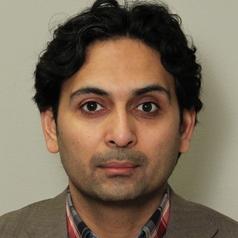
Nader Virk
Reader in Finance, Manchester Metropolitan University
Dr Virk career spanning over two decades brings experience in corporate, regulatory, and academic roles. Since 2012, he has worked in higher education and is an active researcher in asset pricing, volatility modelling, and corporate governance and ethics. He has published in top journals in economics and finance. His research has informed policy work and future research agenda aims triangulating ESG transition, corporate leadership and AI approaches while working with industry and professional services organisations - public and private.
He has worked with European Commission funding bodies and his area of specialisation is application of AI/ML approaches to develop smart solutions for healthcare, public services, manufacturing, and construction industries. He is an experienced leader that views sustainability as the driver of innovation and growth and leveller of national/global inequalities.
Less ![]()
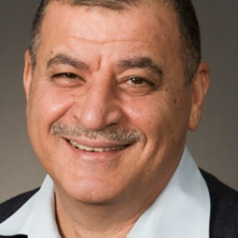
Nadhir Al-Ansari
Professor, Luleå University of Technology
I have been working as a professor in the department of Civil, Environmental and Natural Resources Engineering at Lulea Technical University, Sweden since December, 2007. Prior to that, I worked as Professor at Al al-Bayt University, Jordan (1995-2007) and Baghdad University, Iraq (1976-1995). I obtained my PhD degree in hydrology from the University of Dundee, UK in 1976 and MSc and BSc in geology from the University of Baghdad, Iraq in 1968 and 1972 respectively.
My publications include more than 800 articles in international/national journals, chapters in books and 22 books. I have executed more than 30 major research projects in Iraq, Jordan, Sweden and UK and supervised more than 70 PhD and MSc students. I have received several scientific awards. The British Council on its 70th anniversary in 2004 gave me one of its 10 Cultural Relations Awards. In 2013 I received a best engineering research award from the Iraqi Ministry of Higher Education. I am a member of the editorial board of 32 international journals.
Less ![]()

Nadia Ameli
Principal Research Fellow at the Institute for Sustainable Resources, UCL
I am an experienced researcher on economic, finance and policy aspects of climate change and related energy issues. Currently, I am a Principal Research Fellow with a proleptic Academic Appointment at UCL Institute for Sustainable Resources (UCL ISR).
My work explores the cross-cutting role of finance in the global transition to a low-carbon economy, with a particular emphasis on avenues for integrating finance elements into climate policy design. In particular, I am applying complexity thinking and systemic approaches to the study of market structures for low-carbon finance, to identify points of policy intervention that lead to non-linear investment growth trajectories. In 2018, I was awarded an ERC starting grant (LINKS) focusing on the role of climate finance to meet the Paris goals (2019-2024).
I am also bringing research insights into policymaking and practical experience to bear upon academic studies. My research supported the work at several international public policy organizations, including the OECD, the Green Climate Fund and the World Bank. The impact of my contributions has been recognised through a few influential opinion pieces and coverage in top-tier media (e.g. Sustainable Views in the Financial Times, Bloomberg and Forbes).
I completed my PhD in Business Administration at Polytechnic University of Marche and University of California, Berkeley (co-tutorship of doctoral thesis) with a focus on energy financing policy.
My research interests include climate finance, networks and complexity approaches, policy evaluation methods, financing schemes, low-carbon investments and energy policy.
Less ![]()
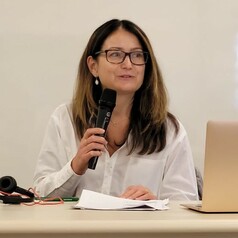
Nadia Bernaz
Associate Professor of Law, Wageningen University
Nadia Bernaz is Associate Professor in the Law group at Wageningen University (Netherlands). She holds a PhD in international law from Aix-Marseille University (France). Her research focuses on business accountability. Her book, Business and Human Rights - History Law and Policy, Bridging the Accountability Gap (Routledge, 2017) was rated as one of the best human rights books of all times. She has published in prestigious law and business journals such as Human Rights Quarterly, the International Journal of Constitutional Law, the Journal of Business Ethics, Business and Society and the Business and Human Rights Journal. She has a strong international experience and has taught students and delivered training to companies, governments, and civil society organizations around the world. She is the book review editor of the Business and Human Rights Journal and the editor of Springer’s “New Approaches to Business, Human Rights and the Environment” book series.
Less ![]()
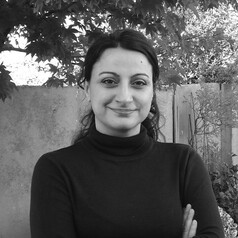
Nadia Haq
ESRC Postdoctoral Research Fellow, Cardiff University
Dr Nadia Haq is a ESRC postdoctoral fellow based at the School of Journalism, Media and Culture at Cardiff University. Her doctoral research examined representations of Muslims in the media from the perspective of journalism practice. Her main research interests include journalism (legacy and digital), media and culture, and race, ethnicity and religion. Before joining academia, she was an international business journalist based in the Middle East for nearly a decade.
Less ![]()

Nadia Hasan
Assistant Professor, School of Gender, Sexuality and Women’s Studies, York University, Canada
Less ![]()

Nadia Kougiannou
Associate Professor of Work and Employment, Nottingham Trent University
Dr Nadia K. Kougiannou is an Associate Professor of Work and Employment at Nottingham Business School. She also serves as the Deputy Director of Research Outputs at the institution. With a background in social anthropology, employment relations, HRM, and organizational behaviour, Nadia has extensive expertise in researching and teaching.
Her principal research interests include investigating the gig economy's impact on work and working conditions, the role of technology and app-work on employee voice, working conditions, and the employment relationship, employer practices and employee reactions in challenging contexts, such as economic recessions, and the impact trust and justice have on the operation and effectiveness of collective and representative voice.
Nadia has an impressive publication record, with her work appearing in renowned international journals such as the Industrial Relations: A Journal of Economy and Society, Human Resource Management Journal, British Journal of Industrial Relations, British Journal of Management, New Technology, Work and Employment, and Journal of Business Research. Her publications are a testament to her dedication to advancing the field of work and employment relations and HRM through her rigorous and impactful research.
Apart from her academic work, Nadia is also an experienced consultant in the areas of employee voice, work in the gig economy, employment relations, trust, and organizational justice. With her outstanding academic credentials and expertise, she has much to offer her students and the wider community interested in the complex world of work and employment relations.
Less ![]()

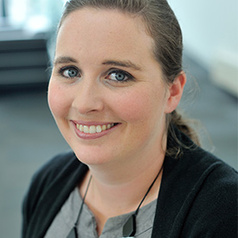
Nadia von Benzon
Lecturer in Human Geography, Lancaster University
I'm a lecturer in human geography specialising in social geography. My specific research interests are around geographies of childhood and of motherhood.
Less ![]()

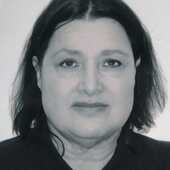
Nadine Dreyer
Health & Medicine Editor
Nadine Dreyer has more than 20 years' experience as a writer, columnist and editor in print and online. She has worked both in Australia and South Africa for publications including the Australian Financial Review, The Star, City Press and the Sunday Times. Her experience includes managing teams on big international stories such as the invasion of Baghdad. She has written on subjects ranging from politics and social trends to wildlife and the environment.
Less ![]()
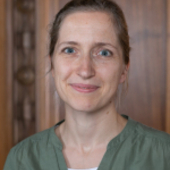
Nadine Riedel
Director of the Institute for Public and Regional Economics, University of Münster
Less ![]()

Nadiya N. Ali
Assistant Professor, Sociology, Trent University
Nadiya is an Assistant Professor specializing in Critical Race, Black Studies, Islamophobia, and Anti-Black Islamophobia at Trent University. Nadiya is passionate about community-action research and working on issues of social justice and inclusion.
Less ![]()
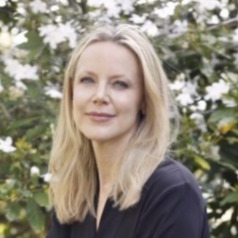
Nadja Schreiber Compo
Professor of Psychology, Florida International University
As a researcher I am interested in potentially detrimental and beneficial interviewing techniques and their underlying cognitive and social mechanisms to improve the quality and quantity of witness and victim recall. I am further interested in examining real-world investigators’ perceptions, experiences and behaviors in a variety of settings including vulnerable witness and victim interviewing and forensic expertise.
Less ![]()
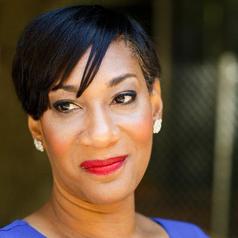
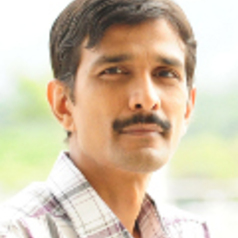
Nafis Alam
Nafis Alam is an Associate Professor at the Nottingham University Business School (NUBS) in the University of Nottingham - Malaysia Campus (UNMC). Prior to this, he was attached with Monash University at Sunway campus where he worked as lecturer in finance. Before that he worked with Multimedia University, Malaysia and CMC Sudan where he was the coordinator of the International MBA program.
He has published quite extensively in the area of finance and his scholarly research has featured in leading journals like Journal of Assets Management, Journal of Banking Regulation, Journal of International Banking law & Regulation, Review of Islamic Economics; Journal of Internet Banking and Commerce and Journal of Financial Services Marketing among others.
He also co authored three books in Islamic Finance among them is Encyclopedia of Islamic Finance which is first of its kind and has sold over 1000 copies worldwide.Dr. Alam is also Visiting Lecturer for Durham Islamic Finance Summer School, Durham University, UK. He is reviewer for leading finance & Islamic finance journals. He has also participated in leading Islamic finance conferences worldwide among them significant was participation in Harvard Islamic Finance forum at Harvard Law School and Gulf Research Meeting at Cambridge University, UK.
Less ![]()
- Market Data




















